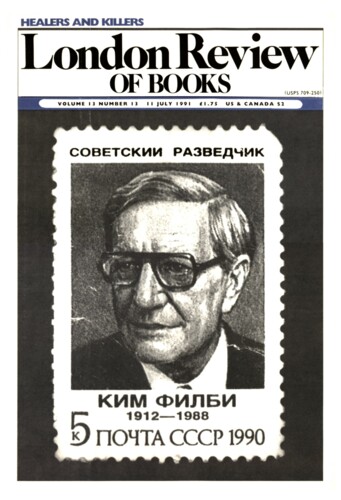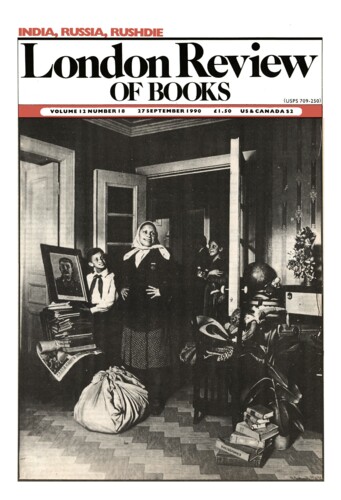Paradise Lost
Nicholas Everett, 11 July 1991
During the 18th and 19th centuries verse surrendered its longer discursive and narrative forms to prose and confined itself more and more to the short lyric and the sequence of short lyrics. Much of this century’s verse appears to be continuing the process by avoiding paraphrasable meaning altogether. One need only point to the work of Wallace Stevens or John Ashbery to show how successfully some of it sustains our expectations while ultimately refusing to deliver the semantic goods. Having extracted a poem’s point, runs the usual defence of such teasing evasions, readers will have no further use for the poem itself: indeterminacy thus insures a poem against prompt expiry and may even keep it enduringly fresh. Furthermore, if a poem can be paraphrased, it will fail to reflect the radically ‘meaningless’, indeterminate nature of our experience. Derek Walcott’s poems, informed and invigorated as many them are by a coherent ideology, don’t conform to this negative aesthetic. Their ideology, however, is a cultural version of it.


